5 Best Manga That Make You Think

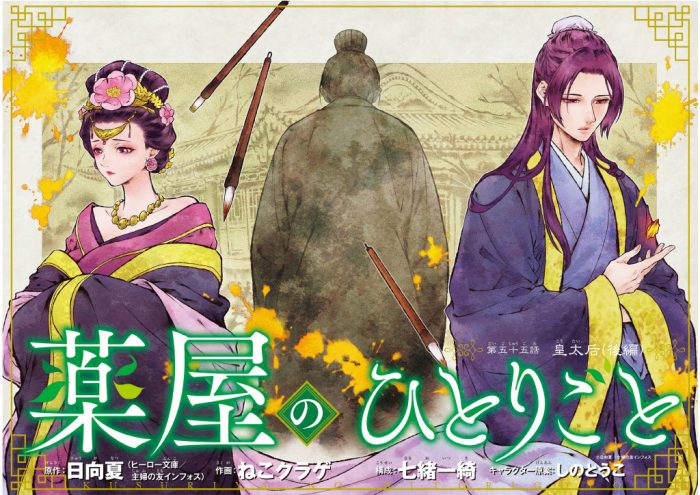
Here at Honey’s Anime, we read broadly—from casual slice-of-life manga to brighten up our day, to oppressively dark manga that makes us question our sanity. Some of our favorite manga series are ones that leave you thinking—either about the complexities of that new world, or the true nature of the topics being discussed. Manga is, after all, a creative and artistic medium capable of expressing and dissecting social and emotional issues. From shounen that interrogate the nature of family bonds, to comedies disguising the emotional pain of youth, we’ve put together a list of all the best manga that’ll have you thinking long and hard after every volume. Join us today on Honey’s Anime as we discuss the 5 Best Manga That Make You Think!
5. Kaguya-sama wa Kokurasetai - Tensai-tachi no Renai Zunousen (Kaguya-sama: Love is War)
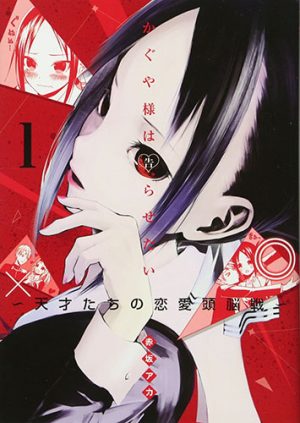
Kicking off our list today is a rather surprising entry, particularly for anime watchers: Kaguya-sama wa Kokurasetai - Tensai-tachi no Renai Zunousen (Kaguya-sama: Love is War). Although the series starts out as a hilarious romantic comedy about two high-school geniuses unable to confess their love for each other, mangaka Akasaka Aka eventually takes the series on a much darker path. Even throughout the earlier volumes, there are moments of introspection for certain characters—Yu Ishigami, in particular—that veer hard into childhood bullying, isolation, and the failings of adults. As the series progresses—somewhere just past Volume 14, almost exactly where Season 3 of the anime ends—our romantic comedy transitions into something far deeper and more troubled. Without spoiling anything in particular, we’ll just say that Kaguya-sama: Love is War opens up a lot of raw wounds, exposing the harsh truth of “high school romance,” while criticizing society’s emphasis on making children choose their career paths at such a young age. The series even covers attempted suicide, the twisting of “love” and “sex” together, and the nature of parental expectations. Kaguya-sama: Love is War is now complete in Japanese at 28 volumes, and there’s no guarantee the series will end on a happy note—perhaps a realistic note is the best we can expect. With every volume, we’re left dwelling on our characters and the paths they need to walk—and reflecting on our paths, too.
4. Jujutsu Kaisen
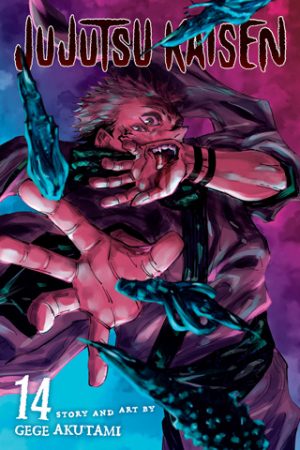
Jujutsu Kaisen very well could have settled into the gentle rhythm of other shounen series, packed full of long monologues and overblown fights. Instead, Akutami Gege has crafted a brutal series that inflicts suffering on the reader as much as the characters, and it seems the series is only going to get bleaker in the future. We won’t spoil anything that’s coming in Season 2 of the anime—the infamous “Shibuya Incident” arc—but suffice it to say, not all of your favorite characters will be coming out unscathed. Jujutsu Kaisen is setting itself up for showdowns between the established families that practice the arts of jujutsu, along with the machinations of the series’ main villains. Jujutsu Kaisen deviates from the standard shounen script by adding a layer of worldbuilding complexity that really makes us think. The mechanics Akutami Gege has created—cursed energy, cursed techniques, heavenly restrictions, binding vows, and so forth—are all complex but work together smoothly, creating fights that remain interesting no matter the match-up. Beyond the combat, the legacy of each major jujutsu family—notably the powerful Zenin clan—plays a heavy role in each character’s story. Reminiscent of series like Fate/stay night, bloodline and birthright typically govern the strength and direction of jujutsu sorcerers, but not everyone is willing to follow a predetermined fate. Jujutsu Kaisen often leaves us reeling from every new volume, and asking even more questions no matter how many answers we’re given!
[ad_middle class="mb40"]
3. Kusuriya no Hitorigoto (The Apothecary Diaries) [Manga]
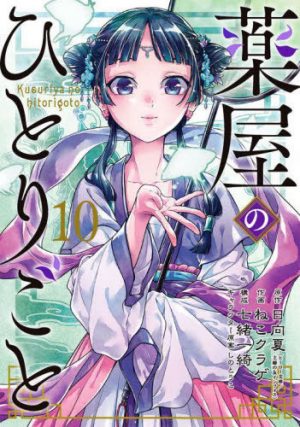
Dive into the complex politics and mysteries of the Inner Palace in the manga adaptation of Kusuriya no Hitorigoto (The Apothecary Diaries)! Based on historical China, The Apothecary Diaries follows Maomao, an apothecary’s assistant who is kidnapped and forced into servitude in the Inner Palace. When Maomao’s talents for poisons and herbalism are discovered, she becomes embroiled in the inner politics of the four Consorts, their maids, and the eunuchs who serve within these hallowed halls. Complicating Maomao’s life is the enigmatic Jinshi, a beautiful eunuch who uses Maomao’s talents to investigate treacherous murders and poisonings in the Inner Palace. The intricacies of the characters and their relationships really make The Apothecary Diaries quite a complex read. Each of the consorts have their own goals and agendas—in the time between volumes, sometimes we need a refresher on who’s who! Coupled with the mystery of who Jinshi really is, Maomao is up to her neck in friends and foes alike—and every chapter brings with it new subterfuge for her to navigate. The Apothecary Diaries is one of our favorite ongoing seinen series at the moment, combining a deep political focus with comedic beats and fantastic artwork. The manga is faithfully adapting the light novels, and we’re hopeful that we’ll see an anime one day soon!
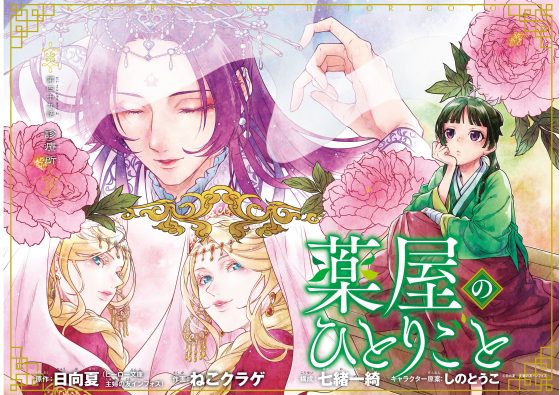
2. Tokyo Ghoul:re
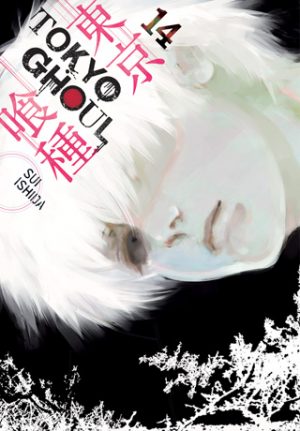
There’s a very specific reason we’re calling out Tokyo Ghoul’s sequel series, Tokyo Ghoul:re here, rather than the original run. In the first part of the franchise, the battleground is clearly defined—an “us versus them” war being waged between the inhuman Ghouls and the Commission of Counter Ghoul (CCG). Despite some infighting amidst the Ghouls, the story is very much focused on Ken Kaneki and his foray into the depths of Ghoul society. Tokyo Ghoul:re, however, is a far more complicated affair that brings into question the nature of humanity itself—what it means to be “Ghoul” or “human” and whether morality is as black-and-white as the CCG would like. In Tokyo Ghoul:re, we’re introduced to the next generation of Ghoul-hunters—humans implanted with Ghoul organs, turning them into hybrid weapons known as Quinxes. While the CCG experiment with their newfound “Qs,” there are questions raised about their newest squad leader—the young Haise Sasaki, who looks so very similar to the recently-departed Ken Kaneki. Throughout Tokyo Ghoul:re, mangaka Ishida Sui forces the reader to question what they consider “human” or “monster,” using his characteristically bold art style to deliver shocking violence and betrayal. Tokyo Ghoul:re also plays heavily with the concept of gender and love, with a transgender character taking a rather large role in the sequel series. The obsession that so often drives Ghouls to madness plays out across both sides of the conflict, all executed with the signature grace that has led Ishida to his level of fame and respect as a mangaka.
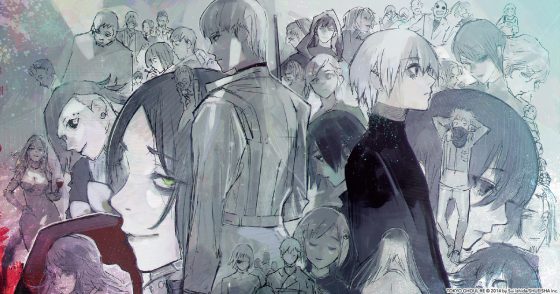
1. Chainsaw Man
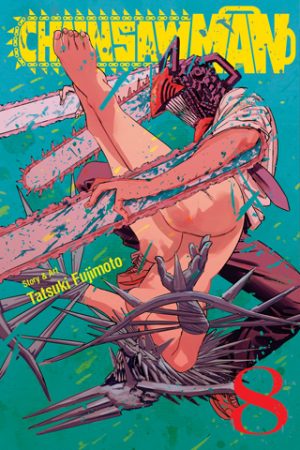
No doubt unsurprising to fans of the manga or the anime, Chainsaw Man is our top pick for manga that make you think! Protagonist Denji is a homeless teenager indebted to the yakuza, barely surviving in a world haunted by vicious devils. After the yakuza betray him and leave him for dead, Denji finds himself reborn as the Chainsaw Devil, thanks to his “pet” devil, Pochita. Taken into the Public Safety division of Devil Hunters, Denji forms an uneasy alliance with the by-the-books Aki, the unpredictable blood fiend Power, and the enigmatic object of Denji’s affections—his commander, Makima. At first blush, Chainsaw Man can come across as unnecessarily crass. Denji’s greatest goal in life is to touch boobs—hardly the noble goal of a hero. But Chainsaw Man isn’t about traditional heroes—it’s a story of misfits, tragedy, manipulation, and loss. Denji’s perverted wants are equally important as Aki’s vengeance, especially when both are willing to lay down their lives for their desires. Chainsaw Man is tragic by nature—a staple of Fujimoto’s writing—and very few characters make it to the final chapter alive. This spiraling loss and depression creates a feedback loop that both spurs Denji on, and unravels his state of mind. No matter how desperately he pursues a “normal” life—the life that was stolen from him at such a young age—he finds betrayal and suffering waiting for him. Chainsaw Man is truly a tragedy, one that pushes the characters—and the reader—to define what it means to have desires, and to reflect on what “achievement” means. Is it worth succeeding if it means losing more than you gained? Can we be content with a smaller lot in life, or should we always be chasing our dreams and striving for more? If there’s any answer, it’s one that each reader should take away for themselves. It’s for that reason that Chainsaw Man is our Top Manga That Makes You Think!
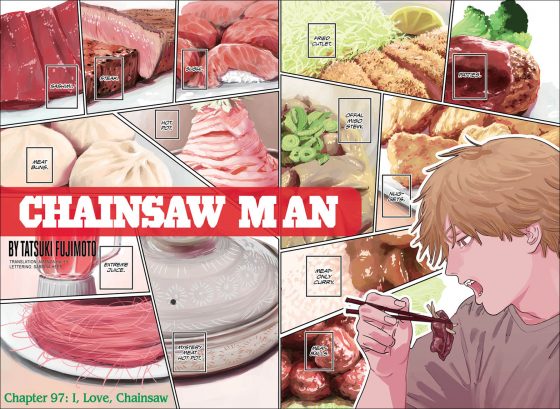
Final Thoughts
Manga is such a complex and beautiful medium, using story and art in tandem to convey brilliant heights and crushing lows. For every series that’s a fun Sunday morning read, there’s another that keeps us awake at night asking some pretty fundamental questions. Have you read any of the manga we mentioned today? If you haven’t, then you’re missing out—grab these titles before your 2023 backlog starts building up! Let’s talk in the comments below, and as always, thank you for reading!
[recommendedPost post_id='349789' url='' title='' img='' class='' widget_title=''] [recommendedPost post_id='352650' url='' title='' img='' class='' widget_title=''] [recommendedPost post_id='349549' url='' title='' img='' class='' widget_title='']

No comments